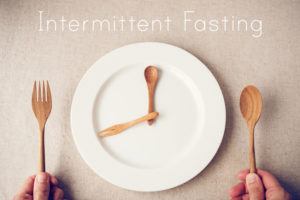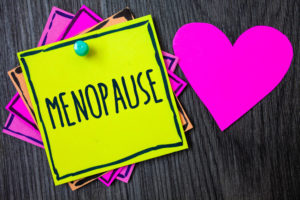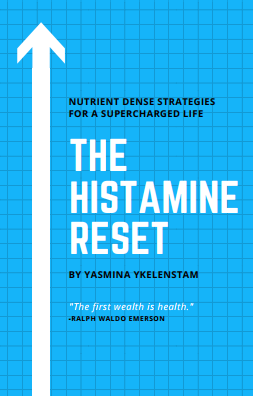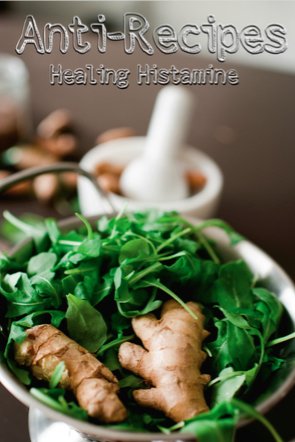
Stress. We all deal with it.
Thanks to the research of Dr Theoharides [1] and others, we know stress hormones can cause mast cells to degranulate, thereby releasing histamine and other inflammatory agents into our bloodstream.
I’d love to know if this is the case just for those of us with histamine intolerance, mast cell activation and mastocytosis, or if it applies to the public in general. I’ll be sure to ask Dr Theoharides in our upcoming interview!
In my own case it has been hard to distinguish whether it’s the stress causing the illness or the histamine causing the stress. According to the experts both explanations are accurate. Luckily I was recently managed to nab Dr Castells for an interview in London just a few weeks ago. In the first part of our interview, Dr Castells shared that lifestyle changes, such as exercise and diet, are integral to improving quality of life in those with mast cell/histamine disorders.
Having recently come to the realisation that my state of mind is linked to the intensity of my symptoms, I thought I’d see what her take on it is.
Yasmina:
How does stress, or our ability to successfully deal with it, impact our prognosis, or the intensity of symptoms we experience? Essentially, what’s our role in this this condition – are we really helpless bystanders at the mercy of our mast cells?
Dr Castells:
“I think really when the patient realises that, and in having a positive attitude about the disease, the impact is tremendous. But not everybody is prepared, not everybody wants to do that. So the recipe is to tell the patient: your disease can actually be treated or it can be managed in a way that you could have an almost normal life – it depends greatly on you, if you have an attitude towards that, to be convinced about this, and then to have less triggers in your life, whether physical, emotional stress, whether the impact of your job.”
Dr Castells went on to say that many of her patients change jobs (something I myself did), or their environment. Some have even had to make changes in family situations. And here’s where I heard one of the saddest stories of my life. Heartbreaking, but sadly, hardly shocking. Castells relayed the story of a woman committed to an institution by her family. She exhibited bipolar type tendencies and clouded thinking (Oh oh. I’ve experienced both, in spades!). By chance the woman fell over (not from a great height) and broke her collar bone. Someone was smart enough to wonder why such a young woman would break bones so easily (the majority of mast cell peeps have bone density issues), and so Castells was called in to consult. A quick round of testing revealed that her tryptase was elevated, in addition to her prostaglandins, which according to Castells are one of the reasons for brain fog, or “mixed brain syndrome” as she and her predecessor dubbed the condition 20 years ago.
I found what she said about prostaglandins very interesting. Though I noticed a huge difference with diet and quercetin, something else fell into place when I began taking a mangosteen supplement. I had chosen to take masngosteen for precisely that reason, because of its anti-prostaglandin activity.
Back to mixed organic brain syndrome: “Those patients can have very clouded mentation, their memory is gone, their anxiety level is very high and they really can’t think straight,” she said. “And this patient, in addition to that, was having convulsions.”
Sound familiar?? Yes, you may go ahead and show this article to your friends and family now.
It was found that the poor woman was actually suffering from indolent systemic mastocytosis. She was released from the institution, and, unsurprisingly, the entire family is now in therapy to deal with the fallout of sending someone they love to what was undoubtedly a terrible experience.
“This is the extreme case in which things around you are so extreme that patients have to explain to their families and their community what it is to have mastocytosis: ie, there are some days that I may just end up on the floor because I have an anaphylactic mast cell activation event, but the rest of the time I am normal and I want you to help me to be completely normal. So that, like I said, the patients have the power to change how they interact with the environment because of the masto, but also the environment has to understand them. And this is really powerful when we start to understand,” Dr Castells told me.
I must agree. In my determination to prove I was ill to those around me – maybe so they wouldn’t have me committed to an institution because of my mixed organic brain syndrome (!), I became trapped in a world of illness, in large part created by my own mind. Sure, I was sick, but did it need to keep me confined to my bed, crying my eyes out 24/7, rendering me incapable of having any kind of conversation, even with strangers, that didn’t involve blurting out how crap I was feeling and that I was really so ill that everyone around me needed to change their behaviours? No. I NOW know that, but I wasn’t ready to accept it at the time. I thank my mast cell activation diagnosis for finally liberating me of those behaviours. Once I knew, and those around me knew, that I was dealing with something a little scary, something tangible, I was ready to throw off the shackles and soar. I wrote a little something about it here.
Yasmina:
At my sickest, I sometimes wondered if I really was that sick, or if it was my brain playing games with me. It seemed that stress (maybe by making me ill by causing mast cell degranulation/histamine release) was causing me to shut down, to run away from life. And illness was the most convenient explanation to help me hide. Your thoughts?
Dr Castells:
“The role of stress and emotional stress is very important. We have a lot of children, as an analogy with asthma, who when their teachers give them bad grades, or they have homework they don’t want to do, or they want to play and their parents say that they can’t, actually provoke their asthma symptoms.
They provoke their symptoms to the extent that they can kind of (a little bit) manipulate their disease. And that is normal, that’s human, and we kind of teach our brain to respond to those cues. In mastocytosis there is a lot of that component, so there’s a lot of symptoms that are truly mediated, by data, by mediators, then there’s the tremendous, what is called supratentorial component of how the impact of the disease is. And it’s a two way street – one is how much the disease impacts you, and how much the patient allows the disease to impact their environment. So kids, I have adolescents who want their parents to do what they want them to, (so for example in UP/urticaria pigmentosa) they think that with the flare ups they will achieve what they want, and in adult patients who also manipulate their environments.
“I’m a cell biologist by training in mastocytosis and mast cell diseases and then there are hematologists who don’t know a lot about mast cell symptoms and there are dermatologists who know a little but about skin, but who don’t know about systemic and so encountering each other at these meetings there’s like a multi-speciality that’s the best thing for the patient. The end result is that this multi system approach allows them to speak with multiple doctors and to integrate everything that they feel is probably due to the disease but can be tremendously managed either by medication or by changing their lifestyle or by changing the brain,” she added.
ABOUT MIXED ORGANIC BRAIN SYNDROME
The cognitive changes consisted of diminished attention and memory, and the affective changes of anger, irritability, and, to a lesser extent, depression. These manifestations fluctuated with the level of disease activity, and appeared in some cases to respond to histamine antagonists and disodium cromoglycate, medications used to control the excessive mast cell activity. It is important for psychiatrists to be aware that mental status changes can represent psychiatric manifestations of mastocytosis, a readily treatable medical disorder.
http://www.psychosomaticmedicine.org/content/48/6/437.short













